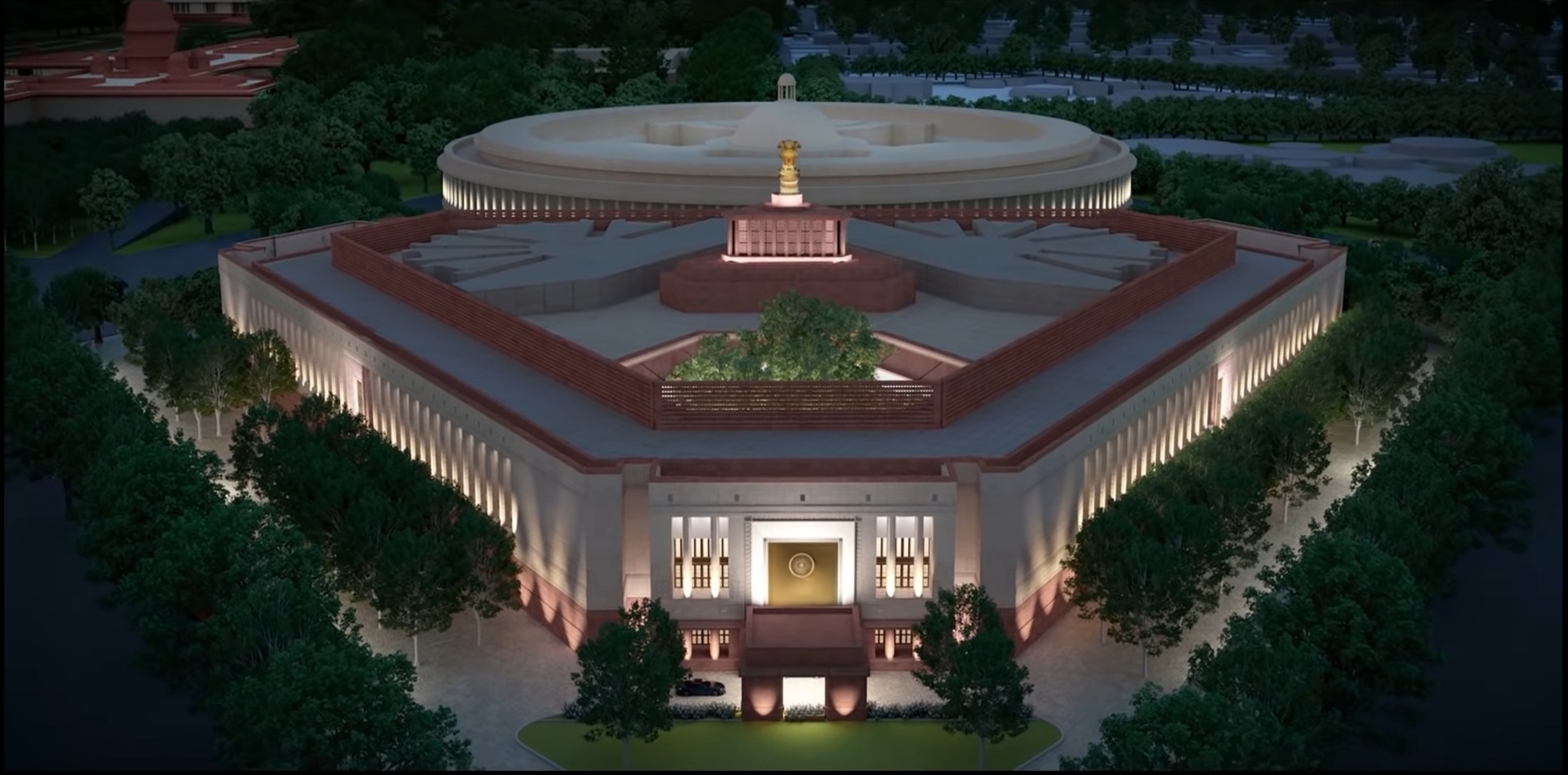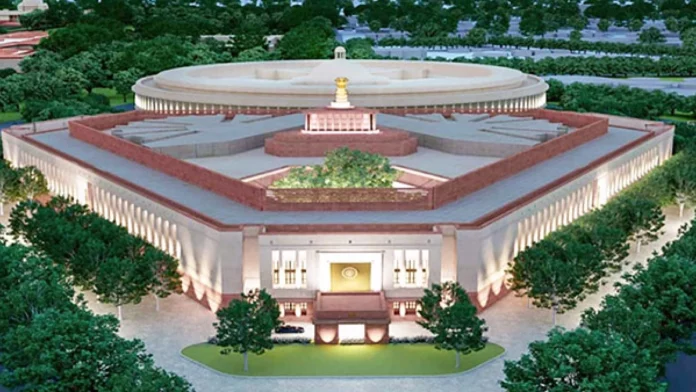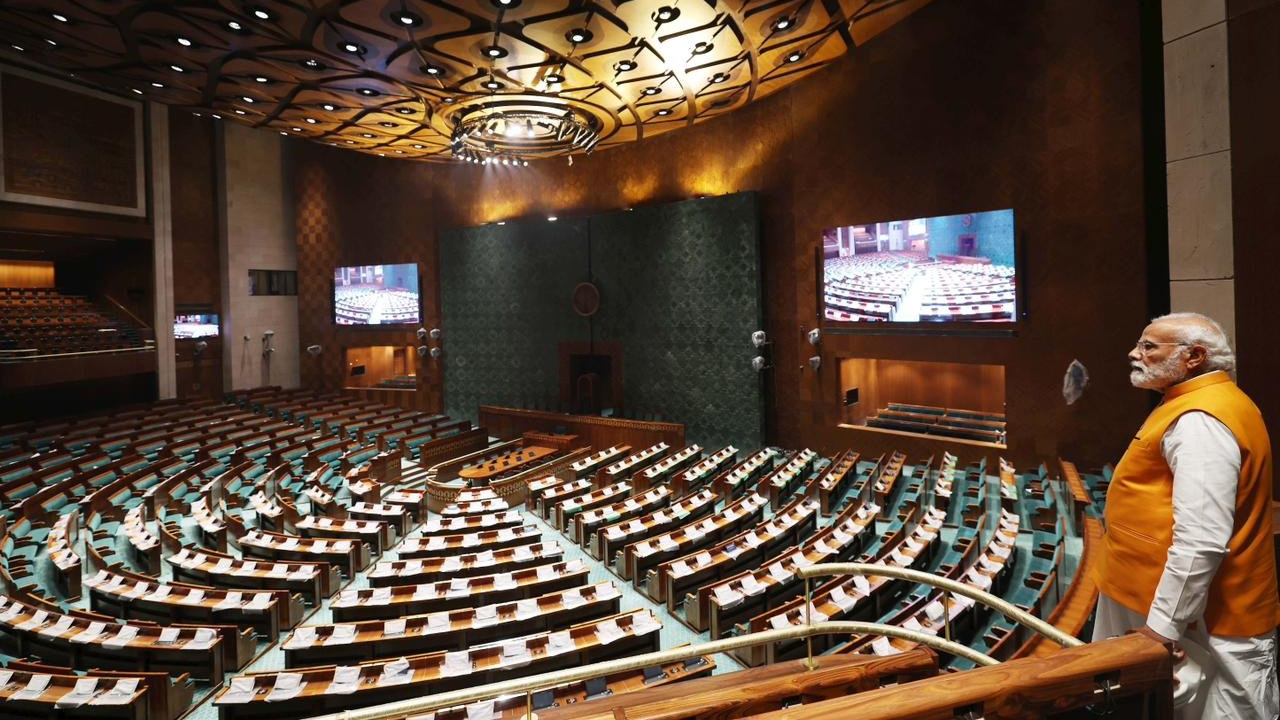The central government is preparing to commemorate its ninth anniversary since coming into power on May 29. As part of a series of events and programs scheduled for this occasion, Prime Minister Narendra Modi is expected to inaugurate the new Parliament building at the end of this month, as informed by sources familiar with the matter.
The Bharatiya Janata Party (BJP)-led National Democratic Alliance (NDA) government took the oath of office on May 26, 2014, and was sworn in for a second term on May 30, 2019, following their victory in the general elections. To mark this significant milestone, the central government has planned the inauguration of a new building that will serve as the Parliament, alongside several other events and programs.
The newly constructed Parliament building spans over an area of 65,000 square meters and incorporates two large halls dedicated to the functioning of the Lok Sabha (the lower house of Parliament) and the Rajya Sabha (the upper house of Parliament). In addition, the building features a state-of-the-art Constitution Hall, a library, offices for lawmakers, and committee rooms for meetings. The Lok Sabha hall, with a seating capacity of 888, boasts a peacock-themed design, while the Rajya Sabha hall accommodates 384 seats and showcases a lotus motif.
Celebrating Progress and People’s Welfare: Inauguration of New Parliament Building Marks Ninth Anniversary of Government’s Tenure
The foundation stone for the new Parliament building was laid by Prime Minister Modi in December 2020. However, due to the outbreak of the COVID-19 pandemic, the construction work for this four-story building, estimated to cost ₹970 crore, experienced delays.
In honor of the ninth anniversary, the government and the BJP have organized a series of events to highlight the social welfare programs initiated by the union government. These outreach schemes aim to raise awareness about the government’s efforts in promoting the well-being of the citizens.
Furthermore, sources suggest that Prime Minister Modi is scheduled to address a rally on May 30, providing an opportunity for him to connect with the public and discuss the achievements and future plans of the government.
The upcoming inauguration of the new Parliament building holds immense significance, as it symbolizes the strength and vitality of India’s democratic system. The structure itself represents a blend of modern design and architectural marvel, serving as a testament to the country’s progress and development.
The decision to construct a new Parliament building was driven by the need for a more spacious and technologically advanced facility to accommodate the evolving requirements of India’s legislative processes. The existing Parliament building, which has been in use for several decades, had limitations in terms of space and infrastructure, hindering the smooth conduct of parliamentary proceedings. The new building aims to overcome these challenges by providing enhanced amenities and state-of-the-art facilities that cater to the needs of lawmakers and facilitate efficient governance.
The peacock-themed Lok Sabha hall is an embodiment of India’s rich cultural heritage. The peacock, known for its vibrant colors and graceful appearance, has long been regarded as a symbol of beauty and pride. By incorporating this theme into the design, the Lok Sabha hall reflects the essence of Indian culture, fostering a sense of pride and patriotism among the parliamentarians.
On the other hand, the Rajya Sabha hall features a lotus motif, a flower deeply rooted in Indian mythology and spirituality. The lotus, with its ability to emerge pristine and untouched from muddy waters, represents purity, enlightenment, and the triumph of good over evil. By embracing this motif, the Rajya Sabha hall signifies the noble aspirations and unwavering commitment of the lawmakers to uphold the values and principles enshrined in the Indian Constitution.
The delayed construction of the new Parliament building due to the COVID-19 pandemic posed several challenges. The unprecedented crisis caused by the pandemic disrupted various sectors, including infrastructure development projects. The nationwide lockdowns and restrictions imposed to curb the spread of the virus resulted in the suspension of construction activities and supply chain disruptions, leading to project delays across the country. The government, however, remained committed to the completion of the new Parliament building, ensuring that all necessary precautions and safety measures were implemented to protect the health and well-being of the workers involved in the construction process.
Reflecting on a Decade of Progress: Celebrating the Central Government’s Ninth Anniversary and the Inauguration of a New Parliament by PM Narendra Modi
As the central government approaches its ninth anniversary in power, it is an opportune moment to reflect upon the achievements and challenges faced during this period. The government’s relentless pursuit of social welfare programs and development initiatives has left a lasting impact on the lives of millions of Indians. Through schemes such as Pradhan Mantri Jan Dhan Yojana, Swachh Bharat Abhiyan, Make in India, and Ayushman Bharat, the government has strived to eradicate poverty, improve sanitation, boost domestic manufacturing, and provide affordable healthcare to all citizens.
The commemoration of the ninth anniversary provides a platform for the government to reiterate its commitment to the welfare and progress of the nation. It serves as a reminder of the government’s vision and its determination to build a strong, inclusive, and prosperous India. The scheduled events, including the inauguration of the new Parliament building and the Prime Minister’s address at the rally, offer an opportunity to celebrate the accomplishments of the past years and outline the roadmap for the future.
In conclusion, the upcoming ninth anniversary of the central government’s tenure presents a momentous occasion for India. The inauguration of the new Parliament building stands as a testament to the government’s dedication to democratic values and governance excellence. It signifies the country’s progress and its aspiration to create a brighter future for all its citizens. The events planned to mark this occasion will not only celebrate the achievements of the past years but also provide a platform for the government to reinforce its commitment to the welfare and development of the nation.


